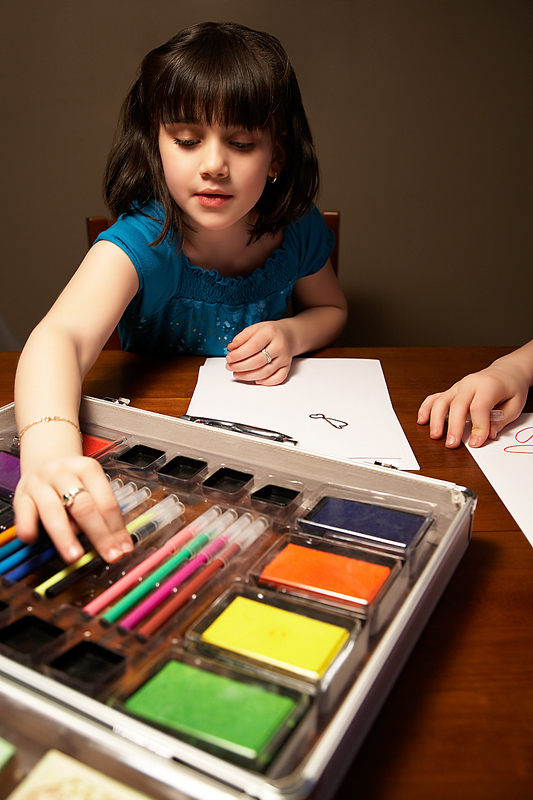Stay Informed
Popular Articles
- Hiatal Hernia: Hidden Cause of Chronic Illness
- Small Intestinal Bacterial Overgrowth (SIBO)
- Applied Lymphology: Unlocking the Secret to Pain Relief
- An Introduction to Constitutional Iridology
- The Low Down on Liver Detoxification
- An Energetic and Emotional Approach to Cancer
- Fat Facts
- Marrow in the Bones
- Blood Type and Nutrition
- Cardiac Herbs: Beyond Hawthorn
Quick Search
The School of Modern Herbal Medicine




Ways to Keep Your Mind Sharp
- 7/10/2012
- Categorized in: Specific Health Problems

Mental Marble Enhancing Idea #6:
Be a Curious Cat
 Curiosity may kill cats (although I’ve personally never seen it happen), but curiosity is not going to kill our brain cells. In fact, it does exactly the opposite. Being curious—that is, interested in learning about things—is a good quality that keeps the mind young and active.
Curiosity may kill cats (although I’ve personally never seen it happen), but curiosity is not going to kill our brain cells. In fact, it does exactly the opposite. Being curious—that is, interested in learning about things—is a good quality that keeps the mind young and active.
We all start out life being curious. Nobody had to “force” or “bribe” us to learn to walk and talk. We decided to learn these skills on our own. As children, just about all of us were naturally curious, informational “sponges” anxious to soak up as much knowledge as we could.
Research shows that most children entering kindergarten love to learn, but most teenagers graduating from high school have come to hate learning. What happened? Obviously, the forced instruction of public education turns learning from a natural, fun experience that satisfies curiosity and interest, into a boring, stressful experience that most people want to avoid.
Unfortunately, this isn’t good for our brains. The brain, like our muscles, gets healthier when it is regularly exercised, and exercise for the brain is learning something new.
Even if they do engage in learning things, most adults tend to stick with fields of study they have already mastered and tend to read stuff that agrees with what they already believe. This basically keeps their brains stuck in mental “ruts” and “boxes.” If you want to develop more mental marbles, study something new and read things that present new information that challenges your existing beliefs about things. This will actually form new neural pathways in your brain and increase your intelligence and creativity, but it requires that you reawaken your childhood curiosity.
I am fortunate that I made a decision in junior high school (after some very stressful run-ins with teachers) that I wasn’t going to let school interfere with my education. I’ve kept that pledge to myself and have become a life-long learner as a result. I regularly get curious about new fields of study and I also regularly read books that challenge my current paradigms. (I call them “paradigm-busting books” and I’m creating a list of my favorites at www.steven-horne.com.)
Just as an example, here is a partial list of topics I’ve read books about, listened to audio CDs or watched DVDs about in the past few years:
- The biological differences between men and womenThe biography of Hershey (who started the Hershey chocolate company)
- New archeological insights into the Americas before Columbus
- How to read body language
- Marketing and business
- Organic chemistry
- The Summerhill School in England (where lessons were voluntary and children helped make the rules through a Democratic
- process)
- Spirituality and religion (I read books on a wide variety of spiritual perspectives and points of view.)
- Cooking techniques
- Gardening
- Russian language and culture
- Psychology
As you can see, I’m a curious cat, and if you want to increase your mental marbles, you should be, too. When you challenge your brain by developing new interests, you not only develop more connections between your brain cells, you also become more creative and flexible in your thinking. It also makes you more tolerant of others.
Mental Marble Enhancing Idea #7:
Learn Like a Kindergartner
 One of the reasons people lose their love of learning is because we make learning so stressful. The brain is designed to help us blot out unpleasant memories, so when we are stressed, we have a harder time learning.
One of the reasons people lose their love of learning is because we make learning so stressful. The brain is designed to help us blot out unpleasant memories, so when we are stressed, we have a harder time learning.
On the other hand, pleasant experiences help store information into long-term memory faster. Bright colors, music, games and other learning tools we use with kindergartners and preschoolers work on adults, too. In fact, we’d all learn a lot better if we continued to use the tools we used in kindergarten to learn throughout our life.
When you’re learning something new, play with it. Make the information fun. Take notes with bright colored markers. Draw pictures. Make up a song about what you are learning. Act it out. Put on classic instrumental music while you’re studying (it has been shown to enhance memory). Make a game out of it. All these things will increase your retention of material two or three fold.
In contrast, if you make learning into work, get stressed over it, beat yourself up about it and otherwise turn it into a negative experience, you will greatly interfere with your ability to learn. This leads directly into the next tip for increasing the number of mental marbles you possess.
Mental Marble Enhancing Idea #8:
Make Lots of Mistakes
 One of the reasons adults don’t like to venture into new areas of study is that you always make lots of mistakes when you’re learning something new and challenging. Public education drills into us the idea that making mistakes is “bad.” It’s a strange notion because nobody learns anything new without making a lot of mistakes. You fell many times in learning to walk and you babbled a lot in learning to talk.
One of the reasons adults don’t like to venture into new areas of study is that you always make lots of mistakes when you’re learning something new and challenging. Public education drills into us the idea that making mistakes is “bad.” It’s a strange notion because nobody learns anything new without making a lot of mistakes. You fell many times in learning to walk and you babbled a lot in learning to talk.
One of the things I’ve noticed about many people is they suffer a sort of paralysis about the idea that they might do something “wrong.” They are afraid to try some herb or supplement because they might have a bad reaction to it. Or, they are afraid to start helping people because they feel like they don’t know enough.
The problem is that book learning isn’t really learning. Books only give us abstract, symbolic ideas. I can read a lot of cookbooks, but I won’t learn to cook unless I start actually making stuff in the kitchen. If I’m not used to cooking, I may burn something, season it wrong or otherwise mess it up, especially, if I’m trying a very difficult cooking procedure. However, I won’t ever be able to cook if I don’t go through this process. The key is to learn to enjoy your mistakes instead of beating yourself up for them.
While it may seem contrary to what you’ve been led to believe, people who achieve the most in this life are people who have made a lot of mistakes. People who are overly cautious and conservative usually don’t discover anything great. It’s the person who steps outside their intellectual box and jumps out of their mental rut who is likely to win the mental marbles game. I’ve written an article about this entitled “The Incredible Value of Mistakes” which is available at www.steven-horne.com.
I hope you’ll follow my example and start doing things where you get to make some great mistakes. You’ll definitely acquire more mental marbles if you do.
Mental Marble Enhancing Idea #9:
Get Off the Bell Curve
 The public education system uses a “bell curve” model for grading. The “bell curve” model is based on the idea that some students are really smart, most students are average, and some at the bottom are stupid. This is a completely false way to view intellect.
The public education system uses a “bell curve” model for grading. The “bell curve” model is based on the idea that some students are really smart, most students are average, and some at the bottom are stupid. This is a completely false way to view intellect.
I was fortunate enough to participate in an experimental class in learning and teaching my final semester in college. I was also working as an undergraduate research assistant in the Instructional Science department as my original intent was to get a Master’s Degree in Instructional Media. There, I was exposed to ideas that forever changed my concept of learning and teaching.
For one thing, I learned that there are over 100 aptitudes that can be measured with testing and that if you administer the full battery of aptitude tests to any group of people, that everyone tests as a genius in at least one and often two or three areas. So, all of us have outstanding skills in at least some areas. In other words, there are many different kinds of intelligence and everybody is a genius at something.
By forcing a “bell curve” model and assigning grades to students, the school system has caused some people to think they are “slow” or “stupid” when it comes to learning. This really isn’t true. If you struggled with a particular subject, (math, reading, science, spelling, etc.) you may have just been in a position at that time in your life where you weren’t ready to master that subject. Often, if the system could have just waited another six months or a year, you would have learned it without a struggle. Our brains develop different areas at different speeds, but the fact is that most of us are capable of learning just about anything and we’re functioning far below our natural aptitude because we’ve absorbed the negative ideas of others.
Jump off the bell curve and stop comparing yourself to other people. I’m trying to learn some Russian and I’m terrible at Russian because I’m in the early stages of learning. Whenever you venture into a new field, you’re going to be terrible at it at first. This doesn’t mean you’re dumb. Don’t compare yourself to other people; instead, celebrate your own progress! You should pat yourself on the back for every step you take, no matter how small the progress has been. When you encourage yourself for making progress, you’ll find that you can probably master just about anything you want to. And, even if you don’t master something, the effort of even working at it will give you more neurological connections in your brain cells and enhance your overall intelligence. In other words, you can’t lose!
Mental Marble Enhancing Idea #10:
Let’s Get Physical
 One of the topics I mentioned I’d studied in the last couple of years was the Summerhill boarding school in England, where students were not required to come to classes. In other words, they weren’t forced to learn. Interestingly enough, most kids eventually attended classes voluntarily without being compelled to, which shows most of us have a natural love for learning. What is interesting though is that the most well attended classes were shop and art classes.
One of the topics I mentioned I’d studied in the last couple of years was the Summerhill boarding school in England, where students were not required to come to classes. In other words, they weren’t forced to learn. Interestingly enough, most kids eventually attended classes voluntarily without being compelled to, which shows most of us have a natural love for learning. What is interesting though is that the most well attended classes were shop and art classes.
In our early years, especially between birth and age eight, most of our brain development occurs through neuromuscular activity, that is, crawling, walking, running, tasting things, smelling things, touching things, etc. In fact, studies have shown that watching TV when we are young inhibits rather than enhances intelligence because it is a passive activity, which does not develop the brain.
Dyslexia occurs in children because they did not crawl enough or otherwise stimulate the development of brain communication through physical activity. Brain Gym, a system of physical activities that helps overcome dyslexia and learning disabilities, shows that movement can enhance learning and intelligence. You can learn more about how to overcome problems like dyslexia through physical movement by purchasing my Holistic Solutions to Learning Problems DVD set.
All of this makes it a shame that in an attempt to “improve the intelligence of our children,” governments have been cutting funding to gym, dance, shop and art classes in favor of more “academic” programs. This actually diminishes development of the brain rather than enhancing it.
Physical activity not only stimulates the development of neuropathways in the brain, it also stimulates circulation to the brain, which enhances brain function and memory. So, if you want to increase your brainpower, also try learning new physical skills—painting, pottery, dance, playing an instrument, learning a new sport, etc. The physical activity will send more blood to your brain and getting movement involved will develop more neural connections to increase your mental marbles.
With all these ways to increase our mental marbles, there is no reason for any of us to “lose our marbles” as we grow older.
